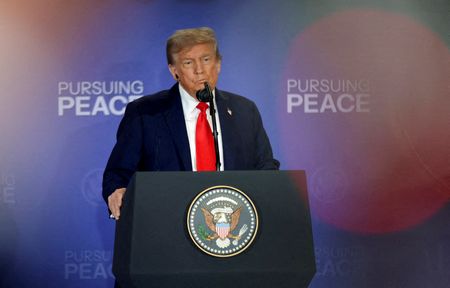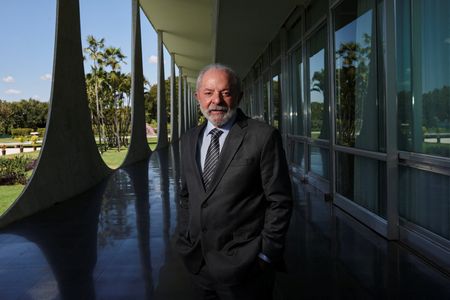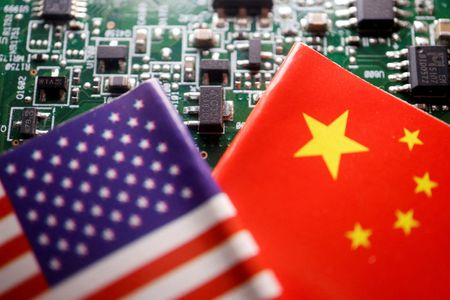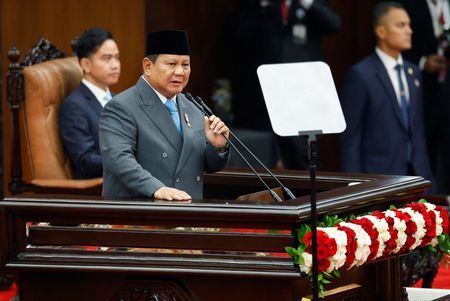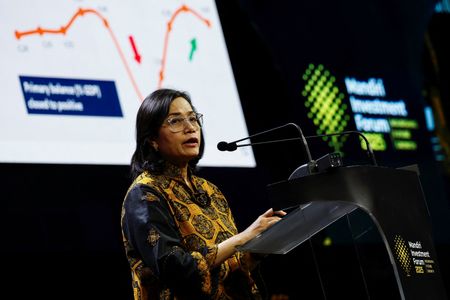By Jihoon Lee and Youn Ah Moon
SEOUL (Reuters) -Global credit ratings agency Fitch said it was “quite closely” watching how South Korea manages geopolitical challenges amid a global trade war between the United States and China.
“Korea is a bit caught in the middle between the U.S. and China, and balancing that relationship will likely be more challenging as trade tensions continue to escalate,” Jeremy Zook, Asia-Pacific director of Fitch Ratings, said in an interview with Reuters on Thursday.
“That is something we will be looking at quite closely, the geopolitical implications in Korea”.
Earlier this month, Fitch downgraded China’s credit rating to “A” from “A+”, on expectations of a continued weakening of public finances due to sustained fiscal stimulus amid subdued domestic demand and rising tariffs.
The U.S. and China have raised their tariffs against each to more than 100%, which economists say have essentially severed trade between South Korea’s two biggest trading partners. South Korea, a major U.S. ally, also faces 25% U.S. tariffs.
Zook said the shift in the global trade system was the biggest challenge for the trade-reliant economy, though the agency did not expect any changes to its “AA-” rating for the time being.
Later on Thursday, a South Korean delegation, seeking lower tariffs, is scheduled to meet counterparts of the Trump administration for an opening round of trade talks.
The trade talks come as South Korea remains embroiled in its worst political crisis in decades, triggered by former President Yoon Suk Yeol’s failed martial law attempt. The country will hold a snap presidential election on June 3.
“It is uncertain who the new administration will be and that makes the negotiation for Korea a little more challenging in the near term,” Zook said.
Amid fears over the impact of U.S. President Donald Trump’s aggressive tariffs, South Korea’s economy unexpectedly contracted in the first quarter, data showed earlier in the day, fanning expectations of more interest rate cuts.
Zook, who no longer sees South Korea’s public finances as an area of credit profile strength, said there also is space to accommodate more fiscal support to offset growth headwinds in the near term.
“There’s still fiscal headroom at the current rating level to manage a supplementary budget this year and another supplementary budget potentially after the election,” he said.
Fitch currently sees South Korea’s economic growth for this year at 1.0%, already revised down once this month from 1.3% in March, but there could be “some downside” to it after Thursday’s data, Zook said.
(Reporting by Jihoon Lee and Youn Ah Moon; Editing by Saad Sayeed)



